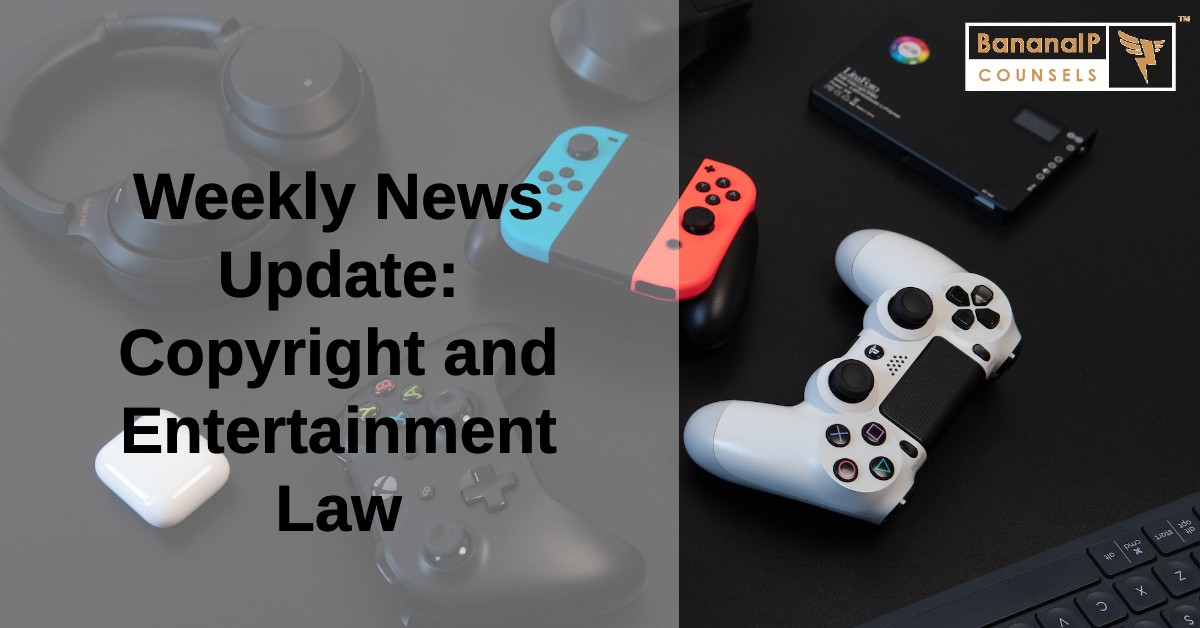This is a weekly post on copyright and entertainment law updates.
Paramount Pictures sues company over ‘McDowell’s’ Pop-Up Restaurant
In celebrating the fictional restaurant from the universe of the blockbuster 1988 film “Coming to America”, a pop-up restaurant chain ‘JMC’ inadvertently offended production house Paramount Pictures, who is now claiming infringement of its intellectual property before the Copyright Claims Board on 24 August 2022. Paramount alleged that JMC, in running the McDowell’s Pop-Up restaurant, has copied several of the elements from its movies, without permission, including the menu, the names and likeness of the characters, and several other elements, including the recreation of the restaurant itself. JMC countered the claim, stating that it was simply a “creative celebration” and did not damage Paramount’s business, nor did it infringe any of their intellectual property rights.
“Free Speech” and “Right to Privacy” Claims can’t help Escape Copyright Infringement
Delhi High Court in its recent judgement against Telegram FZ LLC, in the suit filed by KD Campus Pvt. Ltd., stated that the defences of free speech, or that of right to privacy, cannot be used an as excuse to escape from the liability of copyright infringement. Calling it a duty on part of Telegram under Section 79(3)(b) of the IT Act, the High Court stated that any disclosure of details pursuant to Court Orders of details of persons involved in dissemination of the works infringing copyrights, cannot be “shielded under the grounds of protection of privacy or freedom of speech and expression.”
Epic Games Wins Copyright Infringement Lawsuit over Fortnite Dance Emotes
Videogame giant, Epic Games, successfully repelled another copyright infringement lawsuit filed by a professional choreographer, claiming that one of the dance emotes used in the popular video game, Fortnite, is based on dance routine created by the choreographer, Kyle Hanagami, for the popular song, “How Long”, by Charlie Puth. Epic Games argued that the moves in the dance routine were “too generic” to be considered for copyright protection. The lawsuit was dismissed by the US District Court judge, stating that the dance routines did not contain sufficient “creative elements” to be considered infringement. Court stated in its 24 August 2022 judgment, that the steps of the plaintiff do not qualify for protection under copyright, when they are viewed out of the entire routine.
Authored and compiled by Varun Gopala Krishnan (Associate, BananaIP Counsels) and Tanmay Purohit (Intern, BananaIP Counsels).
This Copyright and Entertainment Law News Bulletin is brought to you by the Copyright and Trademark Division of BananaIP Counsels, a Top ranked IP Firm in India. BananaIP Counsels’ trademark attorneys are among the leading experts in the field. If you have any questions, or need any clarifications, please write to [email protected] with the subject: Copyright News.
The weekly intellectual property law news initiative is a part of their pro bono work and is aimed at spreading awareness about intellectual property and allied laws. You are free to share the news with appropriate attribution and link back to the source.
Disclaimer:
Please note that the news bulletin has been put together from different sources, primary and secondary, and BananaIP’s reporters may not have verified all the news published in the bulletin. You may write to [email protected] for corrections and take down.



